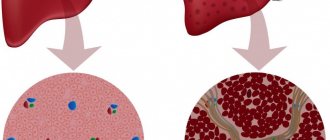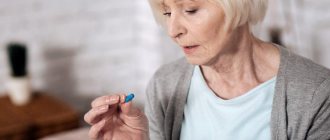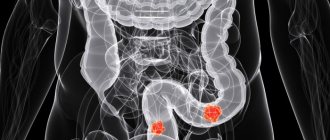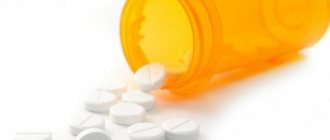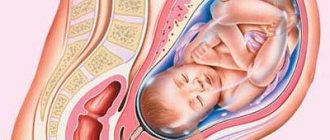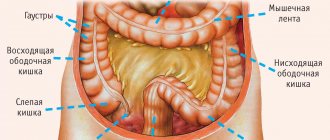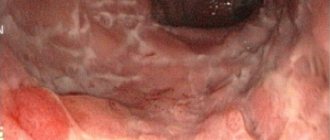What is constipation
To figure out whether you need to drink Enterosgel for constipation, let’s look at why problems with bowel movements arise:
- decreased intestinal motility;
- the appearance of spasms in certain areas of the intestine;
- compaction of feces.
Constipation is a decrease in the amount of feces or rare (1-2 times a week) bowel movements.
In this case, the following symptoms appear:
- abdominal pain;
- flatulence;
- decreased appetite;
- decrease in general tone;
- headache.
General weakness, decreased performance and headaches with constipation appear because with a long delay in defecation, toxins begin to be absorbed into the blood from accumulated feces through the mucous membrane. The entry of breakdown products into the general bloodstream leads to a deterioration in well-being. When treating constipation, it is necessary not only to restore full bowel movements, but also to prevent the development of intoxication.
What does taking Enterosgel give?
The medicine belongs to the intestinal sorbents and is a “molecular sponge” that retains:
- dead microorganisms;
- toxic waste products of pathogenic microflora;
- toxins (entered into the body from outside or formed inside the body);
- salts of heavy metals;
- food allergens;
- products of metabolic processes (cholesterol, lipid complexes, urea, some types of metabolites).
At the same time, Enterosgel does not interfere with the absorption of nutrients and vitamins through the mucous membrane.
If you use Enterosgel for constipation, the following is noted:
- headaches go away;
- the feeling of fatigue disappears;
- general well-being improves.
The drug is safe and its use is allowed even in infants. The medication does not penetrate into the general bloodstream and does not affect metabolic processes in the human body. Improvement in well-being occurs already on the first day of taking the drug.
If you take Enterosgel for constipation, the drug will reduce signs of intoxication, improve digestion, but will not affect peristalsis. Constipation needs to be treated comprehensively and, in addition to taking Enterasgel, it is necessary to eliminate the cause of constipation and take medications that normalize the functioning of intestinal motility.
Treatment plan for dysbiosis
Drugs for intestinal dysbiosis are used purposefully, and from time to time you come across drugs that combine two functions. Moreover, the sequence of taking medications is known exclusively to the attending physician.
Destruction of a harmful strain
Acute clinical signs of dysbacteriosis are caused by the presence of a pathological proliferating strain. With a lack of normal flora, a different picture develops. For example, there is a lack of vitamins. The symptoms are extremely mild, and upon discovering them, few go to the doctor:
- Lack of vitamin PP causes depression. Mood swings and mild mental disorders occur.
- Group B deficiency leads to anemia, the skin on the wings of the nose peels, and lips crack. The development of stomatitis and other infectious diseases is possible. At the same time, intestinal motility is impaired (constipation).
- Impaired production of vitamin K leads to poor absorption of calcium, which impairs muscle activity - calcium takes part in the contraction of myofibrils.
With dysbacteriosis, a harmful strain grows and an imbalance begins, which is a prerequisite for the further development of the situation.
For each pathogenic strain there is an active antibiotic or antiseptic; bacteriophages also fight microbes, which are cultures of fungi or viruses that destroy pathogenic flora. Antibiotics and antiseptics are not living organisms, but chemical substances.
Sorbents
Some symptoms of dysbiosis are caused by poisoning by toxins of harmful bacteria. To isolate poisons, sorbents are used.
Sorbents are not used constantly; the appropriate time is selected for use.
Prebiotics and probiotics
Prebiotics are food for bacteria. For example, the trisaccharide raffinose. Present in many plants as an alternative energy source and moisture regulator to increase frost resistance. There is no suitable enzyme in the human gastrointestinal tract to digest (completely) the molecule. Digestion is carried out with pleasure by bifidobacteria, producing an enzyme, decomposing sugars and extracting energy.
Eating plant foods (rich in fiber) promotes the growth of bifidobacteria, while eating meat produces the exact opposite effect. There is no need to buy prebiotics separately. Focus on familiar foods: peas, cereals, vegetables and fruits that contain dietary fiber and oligosaccharides. Milk will be beneficial.
Probiotics are live strains of bacteria and fungi that either colonize the intestines or make them suitable for absorption by beneficial microflora. Probiotics include metabolites formed during the activity of beneficial bacteria. The meaning of the approach is as follows:
- Taking live strains of bacteria is ineffective; 99% die in the stomach.
- Bacterial metabolites are not processed by the human gastrointestinal tract, passing unchanged to the colon.
- As a result, conditions are created (primarily the pH factor) for the growth of normal microflora.
If you take bifidobacteria under such conditions, the culture multiplies excellently.
Antispasmodics
Antispasmodics eliminate constipation and pain. In this industry, many drugs are used that improve the motor functions of the stomach. Infusions of medicinal herbs bring no less benefits than synthetic substances. But not every person shows deep knowledge in herbal treatment. The instructions for the medicine provide a ready-made answer. For busy adults, taking a synthetic drug seems easier.
Enzymes
The decision to take the drug is made by the doctor; taking such components is not necessary. This is the case when you can help the body absorb food and function normally. Bifidobacteria are not able to break down all raffinose. Buy enzymes to help the process.
Can Enterosgel cause constipation?
We took Enterosgel for diarrhea, but now we have stool retention. Does Enterosgel cause constipation? To figure this out, let’s read the section of the annotation where the side effects are described.
This part of the instructions states that Enterosgel can cause constipation in the following cases:
- Reduced intestinal motility. Taking the drug aggravates the patient's condition;
- A person drinks little water. When taking Enterosgel paste, you need to drink up to 2 liters of water per day. Persons with impaired renal filtration or a tendency to edema should consult a doctor about the drinking regime;
- Failure to comply with admission rules. You need to drink Enterosgel 2 hours before meals or 3 hours after meals three times a day. Mixing the medicine with food leads to compaction of the stool, and dense feces are difficult to move through the intestinal loops.
Unfortunately, in most cases, constipation after Enterosgel occurs due to the patient’s fault:
- Self-medication. Having read that for constipation Enterosgel eliminates signs of intoxication, a person begins to take the medicine on his own. But constipation can be spastic, atonic and physiological, but most patients do not think about it. If stool retention is provoked by intestinal atony, then Enterosgel aggravates the resulting condition;
- Lack of fluid. A person busy with work or household chores often eats dry food and drinks a small amount of water. Insufficient drinking regime in a small child occurs due to the fact that parents, considering the baby to be a water-drinker, deliberately limit him in drinks. If there are no problems with the kidneys, then you should drink more water;
- Failure to comply with admission rules. Some patients do not think that in order for the medicine to help, it must be taken in accordance with medical recommendations. For Enterosgel to work effectively, you must take the medication on an empty stomach.
Enterosgel may cause constipation. To avoid this, you need to carry out treatment as prescribed by your doctor and follow the rules for using the medicine.
Candles for pathology
Treatment of such a disorder can be treated not only with solutions, capsules, tablets, but also with suppositories
It is important to note that suppositories for dysbiosis have different compositions: probiotics, antibiotics. Application method: vaginal or rectal
This form has a significant advantage - enhanced local influence, thanks to which the normalization of the flora is carried out faster and more efficiently.
Rectal suppositories are designed to normalize the intestinal microflora of children and adults. There are two main groups – probiotics and antibiotics. As for antimycotic and antibacterial suppositories, these include:
- Prostopin, Genferon;
- Anuzol and Procto;
- Levomycetin, Apis;
- Kipferon, Nilegan.
Application does not cause side effects. The maximum effectiveness of the drug is observed in pathology of any stage. Do not use during pregnancy.
- Lactonorm;
- Bifidumbacterin;
- Bifinorm;
- Lactobacterin.
These drugs supply the intestines with beneficial bacteria and help restore healthy flora.
The suppository form has much more advantages and effects than tablets and capsules.
As for bacterial suppositories, they are usually used in the treatment of female vaginosis, which is of a bacterial nature. The goal is to restore the vaginal microflora. Antibacterial suppositories: Betadine, Terzhinan and Polygynax. These drugs help suppress fungi and pathogenic bacteria, preventing the development of trichomoniasis. Contraindication: pregnancy.
Suppositories with probiotic complex: Gynoflor, Atsilakt, Labilakt, Vagilakt. Helps restore healthy vaginal microflora after the use of antibiotics, with weak immunity, thrush and diabetes.
There are many drugs available for the treatment and prevention of pathologies such as dysbiosis. For drug treatment to be effective, you must visit a doctor, undergo the appropriate tests and strictly adhere to his instructions.
https://youtube.com/watch?v=Ojpdh—dQn4%3Ffeature%3Doembed
Dysbacteriosis, which consists of imbalance of microflora, is widespread among people whose diet is far from optimal. This condition is not uncommon among the youngest patients – children under one year old.
The fact is that a delicate, fragile body reacts violently to all changes in diet, to medications taken, and to the invasion of harmful bacteria. But often dysbiosis develops for completely different reasons in adults.
Description
Enterosgel is an enterosorbent used for detoxification of the body. As a rule, the drug is used in the form of a gel or paste, which is supplied to pharmacies in plastic packaging of various sizes. The question often arises, does Enterosgel itself cause constipation? It's safe to say no.
The main active component of the drug can be called methylsilicic acid, which in the form of a hydrogel allows you to adsorb harmful secretions, allergens, metabolic waste and toxins in the intestinal environment, and then remove them along with feces from the body.
Enterosgel is sold in the form of a hydrogel in most pharmacies.
Can Enterosgel be used for constipation? One of the advantages of the drug is that it is able to gently remove excess pathogenic microorganisms from the intestines without disturbing the overall balance of microflora and without causing dysbiosis. In this case, the drug does not penetrate the patient’s circulatory system.
It should also be said that, according to reviews, Enterosgel for constipation in adults has a positive effect on the functions of the intestines, liver and kidneys, allowing the elimination of incipient ulcerative processes and improving parietal digestion. The drug is eliminated along with toxins within approximately 12 hours.
Enterosgel molecules have the form of an organosilicon matrix, that is, they bind and carry along only certain elements, usually toxic substances such as poisons, alcohol, urea, cholesterol, heavy metal salts, bilirubin, and so on. At the same time, the medication does not interfere with the absorption of microelements and vitamins.
About drugs
Enterosgel is an enterosorbent. Adsorbs medium-molecular endogenous and exogenous toxic substances from the intestine: bacterial toxins, allergens, pathogenic microflora, metabolites and other agents responsible for endogenous toxicosis.
Other commonly used sorbents: Toxfighter, Fitosorbovit, Enterocar, Polyphenam, Polifam, Smecta, Litovit M, Lymphosan, etc.
Bifiform is a probiotic. The drug contains bifidobacterium bacteria (Bifidobacterium longum minimum 10-7 CFU), enterococci (Enterococcus faecium minimum 10-7 CFU) and a medium for their temporary engraftment. Regulates the balance of intestinal microflora. Due to the presence of an acid-resistant capsule, lactic acid bacteria are not destroyed by gastric juice. When the pH level in the intestine reaches 6.0-6.8, the capsule dissolves. Bacteria actively colonize the small and large intestines. They produce acetic and lactic acids, thereby inhibiting the growth and reproduction of pathogenic microorganisms. Bifidobacteria and enterococci are also involved in the synthesis and absorption of vitamins, and carry out the enzymatic breakdown of proteins, fats and complex carbohydrates (including lactase deficiency in children).
Acipol is a probiotic. A drug that normalizes intestinal microflora. Acipol is a mixture of microbial biomass of live acidophilic lactobacilli (titer 10.7 CFU) strains NK1, NK2, NK5, NK12 and heat-inactivated kefir grains containing a specific soluble polysaccharide, lyophilized in a cultivation medium. According to the mechanism of action, Acipol is a multifactorial therapeutic agent, has antagonistic activity against pathogenic and conditionally pathogenic microorganisms, has a corrective effect on the intestinal microflora, and increases the immunological reactivity of the body.
Mezim Forte is an enzyme preparation that replenishes the deficiency of pancreatic enzymes. Mezim Forte compensates for the insufficiency of the exocrine function of the pancreas and improves food digestion. The pancreatic enzymes included in the drug - amylase, lipase and proteases - are released in the alkaline environment of the small intestine, facilitate the digestion of carbohydrates, fats and proteins and contribute to their more complete absorption.
Other commonly used enzyme preparations: Panzinorm forte, Pantsirat, Creon, Pankreotin, etc.
Rumicosis is a synthetic broad-spectrum antifungal agent. Triazole derivative. Inhibits the synthesis of ergosterol in the cell membrane of fungi. Active against dermatophytes (Trichophyton spp., Microsporum spp., Epidermophyton floccosum), yeast fungi Candida spp. (including C. albicans, C. glabrata, C. krusei), molds (Cryptococcus neoformans, aspergillus spp., Histoplasma spp., Paracoccidioides brasiliensis, Sporothrix schenckii, Fonsecaea spp., Cladosporium spp., Blastomyces dermatidis). The effectiveness of treatment is assessed after 2-4 weeks. after cessation of therapy.
Some other antifungal drugs: Irunin, Itraconazole, Itramikol, Itraconazole-ratiopharm, Fluconazole, Diflucan, Mikosist, Flucostat, etc.
This course of treatment for dysbacteriosis, approximately designed for three months, was prescribed to me by a gastroenterologist. After this course I had to come and retake all the tests...
Indications for use
Like some other drugs, the drug is widely used in a variety of fields of medicine when one or another intoxication of the body occurs. The drug has practically no side effects; even constipation from Enterosgel in an infant as a result of an overdose is hardly possible.
Enterosgel is also sold in the form of hard-shell capsules
It is customary to use Enterosgel not only for constipation. There are many factors and diseases that can serve as serious reasons for the attending physician to prescribe the drug for use. Among the main factors the following can be mentioned:
- chronic or acute diarrhea resulting from infection, poisoning, antibiotic dysbiosis, inflammatory bowel disease, or for any other reason;
- intoxication of the body as a result of poisoning with salts of heavy metals, drugs, alcohol, various chemicals and anything else;
- dysbacteriosis due to disorders of the intestinal microflora;
- dyspeptic and ulcerative diseases of the gastrointestinal tract;
- chronic diseases or failure of the liver, kidneys and biliary system;
- acute allergic reactions and chronic food allergies in the form of bronchial asthma, allergic rhinitis, urticaria or other allergic diseases;
- skin diseases such as eczema, dermatitis, acne, and so on;
- in the treatment of cancer to detoxify the body from the side effects of chemical and radiation therapy;
- almost any purulent-inflammatory diseases;
- toxicosis during pregnancy.
If a person is healthy and does not have any pronounced signs of the above, then Enterosgel can be used for preventive purposes, to cleanse the body of waste and toxins. This is especially true with the risk of chronic intoxication, which is possible during work and constant presence in environmentally unfavorable places.
Enterosgel can also be given to infants in small doses.
Visual analysis of stool for intestinal microflora disorders
Also, with dysbacteriosis, serious attention is paid to the nature of the pathology of the intestinal tract, which is quite simply determined by the type and color of feces, as well as the condition of the stool. . Stools with a yellowish tint indicate a large amount of undigested fiber in the stool and excess starch
Treatment of this condition must be carried out by changing the diet. Protein foods (boiled meat, eggs, cottage cheese) are recommended, which should replace raw vegetables, carbohydrates and milk.
Stools with a yellowish tint indicate a large amount of undigested fiber in the feces and excess starch. Treatment of this condition must be carried out by changing the diet. Protein foods (boiled meat, eggs, cottage cheese) are recommended, which should replace raw vegetables, carbohydrates and milk.
Very dark and foul-smelling stool indicates an alkaline reaction in the intestines, as well as undigested fibrous food. In this case, you need to exclude meat and fats from the diet, replacing calorie intake with boiled vegetables and dairy products.
Intestinal dysbiosis, which is accompanied by diarrhea, must be eliminated with a diet based on “soft” food. Dishes in the diet should not be hot or cold; if possible, food should be boiled and pureed.
Sometimes a violation of the intestinal flora manifests itself as constipation. For this type of intestinal disease, treatment involves including foods with a lot of fiber in the diet: apples, cabbage, carrots, apricots. Such a diet should lead to an increase in the content of beneficial flora in the intestines.
It is necessary to distinguish between truth and fiction
When parents hear the word “bacteria,” fear immediately appears in their eyes. In fact, microorganisms are found in the intestines of every person. They speed up the process of digesting food. We can say that bacteria are the basis of all metabolic processes and the production of vitamins. Unfortunately, due to external and internal circumstances, the characteristics of microorganisms may change.
They suddenly turn from useful to dangerous. One should not think that a cataclysm is always global in nature. Beneficial bacteria may not like a portion of milk or baby food. Even one glass of juice is enough to upset the balance in your baby's tummy. As soon as this happens, a pathological process starts inside the child - dysbiosis.
As the name suggests, we are talking about a sharp change in the ratio of beneficial and harmful microorganisms. As soon as the problem knocks on the door, you need to immediately go to the pediatrician. Otherwise, there is a high probability of developing an acute intestinal infection.
Popular immunomodulators and enterosorbents
Prescribed in addition to the main therapy. Enterosorbents are a group of drugs characterized by their ability to remove toxic substances from the body. They also make their contribution to the treatment of intestinal dysbiosis in adults - drugs in this group will be an excellent addition to the main therapy. The most popular are “Polysorb”, activated carbon, “Enterosgel”, “Filtrum”. They are prescribed for a short period of time, no more than 14 days.
Immunomodulators help speed up the restoration of intestinal microflora. Prescribed exclusively by a doctor. It is recommended to give preference to products of natural origin: tinctures of propolis, echinacea, lemongrass or eleutherococcus, “Immunal” and “Dibazol”. As can be understood from the name of this group, they stimulate an increase in the body’s defenses, help develop or strengthen existing immunity to various infections.
Therapeutic recommendations for parents of infants
Diarrhea, constipation, colic, poor appetite, tearfulness - all this indicates a serious problem. Pediatricians prohibit reaching for medications before visiting a doctor. This is explained as follows:
- not all children quickly adapt to a new type of nutrition. For example, complementary feeding can cause loss of appetite during the first few days. There is no need to panic. You just need to give the child a little time;
- Things are worse when loss of appetite and poor stool appear due to excess, insufficient or improper feeding. In each case, the doctor selects a specific method of therapy.
One of these is Enterosgel sorbent for dysbiosis in infants, prescribed by a pediatrician for dysbiosis in infants. Its advantage lies in its ability to absorb excess amounts of harmful bacteria. At the same time, their useful counterparts remain untouched.
As the balance in the intestines normalizes, the child’s health returns to normal. Separately, doctors are rushing to focus on all sorts of other remedies for dysbacteriosis. Parents think that a capsule or mixture with beneficial bacteria will help restore lost health.
In reality, things are different. No matter how many such useless drugs enter the body of a minor, they will not help him. The drug will simply burn in the acidic environment of the gastrointestinal tract. The only correct decision in such a situation would be to refuse self-medication.
The doctor’s task is to reduce the concentration of dangerous bacteria as quickly as possible using a sorbent. The body will do the rest.
List of tablets for intestinal dysbiosis in adults
As already mentioned, there are many drugs developed to treat this pathology. Each has its own role and purpose. In addition, they are available in the form of tablets, powders, suspensions and drops. The most popular in different pharmacological groups are:
- Enzymes that help digest food: Pancreatin, Mezim, Creon.
- Probiotics: “Linex”, “Acipol”, “Bactistatin”, “Lactofiltrum”, “Bifiform”, “Maxilak”.
- Sorbents: Filtrum, activated carbon.
- Antimicrobials are antibiotics whose purpose is to destroy pathogenic microflora: Amoxiclav, Amoxicillin, Levomycetin, Ceftriaxone.
- Antibacterial agents: “Nystatin”, “Metronidazole”, “Fluconazole”, “Piobacteriophage”, “Bacteriophage”.
- Antiulcer drugs: “Omez” (for increased stomach acidity).
- Antispasmodics: Duspatalin (against pain in the intestinal area).
- Antidiarrheal drugs: Smecta, Hilak Forte.
- Sorbents: "Polysorb".
- Probiotics: “Bifidumbacterin”, “Normobakt”, “Evitalia”.
- Adsorbents: “Almagel”, “Enterosgel”, “Phosphalugel”.
As you can see, there are many drugs that can be prescribed for dysbiosis. The appointment is made only by a doctor and only after receiving the results of the relevant tests. A whole range of remedies is selected and a diet is recommended (treatment table No. 4 according to Pevzner). Along with this, to avoid intestinal dysbiosis from antibiotics, probiotic tablets are prescribed, which must be taken throughout the course of therapy. Doctors usually recommend Linex, Bifidumbacterin, Laktofiltrum, Acipol. These drugs are very popular and have earned the love of the people, as can be seen from the reviews of each of them.
Clinical manifestations of constipation: you need to monitor your health
It is a mistake to believe that problems begin at the moment when the act of defecation turns into a real test. Long before this, the body sends small but frequent signals. Rumbling, bloating, a feeling of fullness in the abdomen - all this indicates that the body is having difficulty eliminating waste products. This will not lead to anything good, because toxins will begin to spread throughout the body.
One way to eliminate constipation is a sorbent. Its action can be illustrated using the example of a sponge. Once the substance is inside a person, it literally attracts all harmful substances. At the same time, beneficial microelements and bacteria remain unchanged. Unlike potent medications, Enterosgel does not disrupt the intestinal microflora.
Rating of effective drugs for dysbiosis
It is difficult to name the best drug for intestinal dysbiosis, since everything depends on the etiology of this pathology. If we talk about probiotics and prebiotics, you can consider the option of using symbiotics - a group of drugs that includes medications consisting of both the first and second components. “Maxilak” is rightfully considered one of the best. It consists of 9 microorganisms that effectively cope with dysbacteriosis, and also help with problems in the functioning of the immune and respiratory systems. The ranking of the best symbiotics also includes:
- "Normospectrum";
- "Maltidophilus";
- "Filtrum-ST Bifidoback";
- "Bactistatin";
- "Lactofiltrum".
As for prebiotics, the best drugs for intestinal dysbiosis in adults are recognized as:
- "Duphalac";
- "Portlak";
- "Romfalak";
- "Normalase";
- "Hilak Forte".
Best probiotics:
- "Linex";
- "Bifidumbacterin";
- "Bifiform".
There are also combination probiotics:
- "Acipol";
- "Kipacid";
- "Florin Forte".
In addition, Imodium and Loperamide can be included in this rating as means to help get rid of spasms. And “Smecta” and “Enterosgel” are engaged in restoring intestinal motility; in addition, these are excellent sorbents. All 4 drugs are aimed at eliminating diarrhea and its unpleasant symptoms.
How to use Enterosgel for constipation
The maximum duration of treatment ranges from 10 to 14 days. It all depends on the severity of clinical manifestations. Positive changes are noticeable 30 hours after the start of administration. The sorbent can be taken in pure form or by mixing with non-alcoholic drinks without gases. The doctor will give specific recommendations on this matter. An important role in the treatment and prevention of constipation is played by the correctly selected dosage. The doctor takes into account the patient’s age and state of health:
- children under 5 years old can take no more than ½ teaspoon 2 times a day;
- adolescents are prescribed 1 tablespoon 3 times a day;
- adults take 1.5 tablespoons 3 times a day;
- Elderly patients and people with chronic diseases take no more than 2 tablespoons 2 times a day.
The patient should not independently change the dosage and duration of administration prescribed by the doctor. Otherwise, the therapeutic effect will not be achieved. It is strictly forbidden to stop the course until the doctor advises you to do so. Restoring the functioning of the gastrointestinal tract is a long process, so the body needs to be helped on the right path.
Indications for use
Enterosgel is effectively used in the following cases:
- gastrointestinal diseases;
- liver diseases;
- kidney diseases;
- drug and food allergies;
- infectious diseases;
- diarrhea;
- skin diseases;
- infectious diseases;
- intestinal dysbiosis;
- early gestosis;
- oncological diseases.
Effect of the drug
The basis of the drug is a hydrogel in the form of methyl silicic acid. Enterosgel belongs to the category of enterosorbents; when taken orally, it has a detoxifying effect.
The hydrogel absorbs toxic substances well from the intestines and blood and, after absorption, ensures their excretion along with feces. In this way, pathogenic microflora is also eliminated, while bifidobacteria and lactobacilli are completely preserved.
Patient recommendations
For some people, drug reviews can be a determining factor. Treatment of intestinal dysbiosis is a serious process that must be approached seriously, paying attention to every nuance. By the way, the main contraindications to taking medications aimed at treating this pathology are allergic reactions as a result of intolerance to the components of the drug. The most pronounced effect is found in liquid form. But they are considered more effective. But drugs in tablet form are inferior in effect, but are safer.
Many patients recommend the use of lyophilisates for the preparation of suspensions for oral administration. These are, for example, “Bifikol” and “Bifidumbacterin”. As for the cheapest tablets for intestinal dysbiosis, the list includes Lactobacterin, Biovestin, Probifor, Biobakton and Florin Forte. According to experts, they are not inferior in efficiency to their expensive counterparts.
Also in patient reviews you can see recommendations regarding taking the drugs “Hilak Forte”, “Narine”, “Baktisubtil”, “Biovestin”. In general, all the drugs that were discussed in the article are in good demand and are effective in the fight against dysbiosis, and this is the main thing. Many of them do not cause allergic reactions, and therefore can be used even by allergy sufferers in the treatment of the disease.
It is important to remember that treatment of intestinal dysbiosis with tablets, lyophilisates or suspensions can take a long time, and for a lasting result an integrated approach is required. However, most drugs cannot be used for longer than 14 days, others - more than a month. This once again confirms that the development of a therapeutic plan should be carried out by the attending physician. He is obliged to prescribe the appropriate tests to the patient, and not choose drugs “based on the steepness”, relying on his own experience and not taking this pathology seriously. With this approach, it is better to contact another specialist.
In conclusion, I would like to note that although dysbiosis in medicine is not considered a disease as such, it still requires treatment, if only because it causes a lot of inconvenience to a person. At the same time, self-medication in this situation should be excluded, since the purchased drug may simply be ineffective if the cause lies, for example, in an intestinal infection. And even if it helps, there will soon be a relapse - the primary pathology has not been eliminated. In any case, to understand which pills to take for intestinal dysbiosis, you need to undergo an examination. It will allow you to identify the cause and strike precisely in its direction. A bacteriological study will also help determine which bacteria are missing in the intestines so that selection can be made based solely on this data. Then the therapy will be as effective and correct as possible.
How does Enterosgel ointment work?
The ointment is made on the basis of methyl silicic acid hydrogel. This is an enterosorbent that has a detoxifying effect on the human body, during which toxic substances are destroyed and neutralized. The hydrogel absorbs toxins from the blood and intestines and promotes their intensive elimination along with excrement. The body is freed from pathogenic microflora, while beneficial lacto- and bifidobacteria are fully preserved.
The drug Enterosgel for constipation acts as follows:
- Localizes symptoms of intoxication.
- Optimizes work
- liver and kidneys.
- Improves the quality of blood and urine.
- Helps normalize parietal digestion.
- Prevents the occurrence of peptic ulcers.
- Strengthens the immune system.
Enterosgel in pediatrics
To treat diathesis, children are prescribed Enterosgel. Constipation in this case may be a consequence of such a disease, which is allergic in nature. In some cases, it can develop into more complex diseases such as allergic rhinitis and bronchial asthma. The drug has no age restrictions, so many pediatricians prescribe it even to infants.
How to take Enterosgel?
The drug Enterosgel for constipation should be taken orally in a course lasting one and a half to two weeks.
The daily dosage of the ointment depends on the age category of the patient:
- Children under three years old - up to 10g.
- Children from three to five years old - up to 15g.
- Children and teenagers from six to fourteen years old – 30g.
- Adults – up to 30g.
Methods of using ointment for constipation
The daily dose of Enterosgel for constipation is taken orally three times, two hours after meals and taking other medications, with plenty of water.
How to find out the right medicine
If you don't trust pharmacists, do a search on the Internet yourself. A set of words like “medicines for intestinal dysbiosis” would not be the best option. Use selection by treatment group. Scroll through the international classifier where diseases are registered. Online directories and pharmacies are available, where medications are sorted according to the data.
In the case of dysbacteriosis, it is necessary to find the K63.8.0 or K59.9.0 group. We provide a working link to give you an idea of what rlsnet.ru/mkb_index_id_11384.htm means. The mobile version of the radar directory is available on Google Play and App Store. Load and travel through the collection in your free time.
Let's give a few examples from this site so that readers, reasoning in a similar way, choose a medicine against dysbacteriosis.


